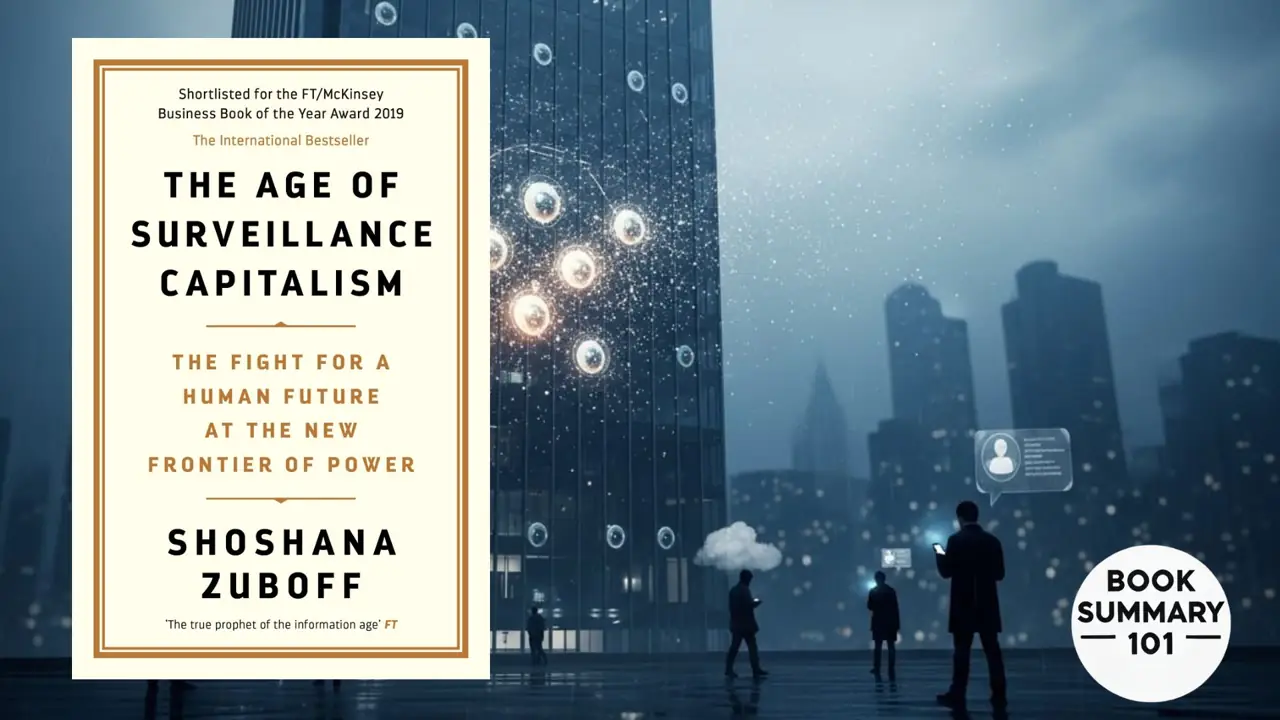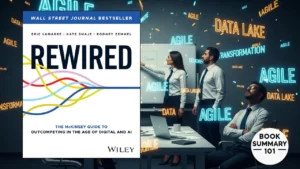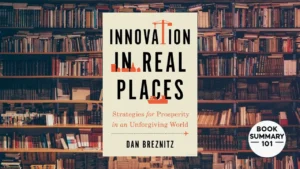Ever feel like your phone knows you better than your best friend? Or that your favorite social media app is listening in on your conversations? You’re not imagining things—and Shoshana Zuboff’s The Age of Surveillance Capitalism explains exactly why that eerie feeling exists. This book is not just about how technology impacts us; it’s a wake-up call about how corporations are shaping our world—and our futures—without asking for permission.
Let’s break it down.
What’s It All About?
Zuboff, a Harvard professor and tech researcher, dives into how big tech companies (think Google, Facebook, Amazon) have turned personal data into a goldmine. She calls this phenomenon “surveillance capitalism.” Essentially, these companies collect, analyze, and profit from our online behaviors—everything from what we search to where we go and even how we feel.
The scary part? Most of this happens without us fully realizing it. And it’s not just about targeted ads; this is about controlling our behavior and shaping society.
Zuboff argues that this is a new form of power, one that rewrites the rules of capitalism. In this world, we—our habits, preferences, and emotions—are the raw materials fueling a trillion-dollar industry.
Why Read This Book?
If you’ve ever felt uneasy about how much technology seems to know about you, this book will give you the clarity (and chills) you need. But it’s not just about fear—it’s about empowerment. Here’s why The Age of Surveillance Capitalism is a must-read:
1. It’ll Change How You See Technology Forever
We live in a world that feels seamlessly connected—your phone buzzes with updates, your watch tracks your steps, and your favorite app knows exactly what you want before you do. But have you ever wondered what’s happening behind the scenes?
Zuboff dives deep into how these technologies are designed not just to help us, but to study us. Every click, swipe, and “like” contributes to a vast pool of data that tech companies mine to predict (and even influence) our behavior.
This isn’t just about targeted ads for shoes you browsed last week. It’s about shaping our desires, nudging us toward decisions, and creating an environment where our choices don’t feel as free as we think. Once you see the inner workings of surveillance capitalism, you can’t unsee it—and that awareness is liberating.
2. It’s About Fighting for Your Freedom
At its core, this book isn’t just about technology—it’s about power. Surveillance capitalism has created a world where a handful of corporations wield extraordinary influence over our lives, often in ways we don’t understand or consent to.
Zuboff warns us that this goes beyond privacy concerns. When companies like Google or Facebook use our data to predict and manipulate our behavior, they’re eroding our autonomy. Think about it: if a platform can subtly push you toward voting a certain way or buying a product without you even realizing it, who’s really in control?
This isn’t science fiction—it’s happening right now. And the implications are massive. Zuboff connects the dots to show how this new form of capitalism undermines democracy, equality, and the very idea of a free society. It’s a battle for control over not just our data, but our futures.
3. It Arms You with Knowledge to Take Action
Feeling powerless is one of the biggest hurdles when it comes to tackling the tech giants. They’re huge, complex, and seem untouchable. But Zuboff emphasizes that understanding the problem is the first step toward reclaiming control.
By breaking down the mechanics of surveillance capitalism, this book equips you to:
- Recognize when your data is being exploited: Ever wonder why apps ask for permissions they don’t need? Now, you’ll understand what’s really at stake.
- Make informed choices: Whether it’s switching to privacy-focused alternatives or adjusting your online habits, you’ll feel empowered to take small but meaningful steps.
- Demand accountability: Zuboff highlights the importance of collective action, from supporting legislation to calling out unethical practices.
You don’t have to throw away your phone or delete all your accounts to fight back. This book gives you the tools to balance convenience with vigilance and to advocate for a digital future that respects our rights.
4. It’s a Call to Reclaim What Makes Us Human
One of the most profound takeaways from The Age of Surveillance Capitalism is Zuboff’s belief in our capacity for resistance. She reminds us that we are not just users or data points; we are individuals with the power to demand better from the systems we interact with.
She challenges us to rethink the relationship between technology and humanity. Should our most private thoughts, feelings, and behaviors be treated as a commodity? Or can we push back and create a world where technology serves us—not the other way around?
This isn’t just a book for tech experts or policymakers; it’s for anyone who values freedom, dignity, and the human experience. By understanding how surveillance capitalism works, you’re not just protecting your data—you’re taking a stand for a more equitable and humane future.
Final Thought on Why You Should Read It
This isn’t just a book you read; it’s a book that sticks with you. It challenges you to look at your everyday actions—scrolling social media, using GPS, shopping online—and see them in a new light. It’s eye-opening, empowering, and, yes, a little unsettling.
But here’s the good news: awareness is power. And with this book in your hands, you’ll have the knowledge to navigate the digital age with your eyes wide open.
Real-Life Examples That Hit Close to Home
Google Maps Isn’t Just Helping You Navigate
Did you know that Google doesn’t just map the roads you travel? It also maps you. Every search, every route, every stop is logged. This data isn’t just used to improve the app; it’s sold to companies who want to know how you live your life.
The Facebook-Cambridge Analytica Scandal
Remember when Facebook was accused of helping sway elections? That wasn’t just about shady politics—it was a masterclass in surveillance capitalism. Cambridge Analytica used data from millions of Facebook users to predict and influence their voting behavior.
Smart Home, or Smart Spy?
Your Alexa or Google Home might make life more convenient, but these devices are also listening. They’re not just helping you set timers or play your favorite playlist—they’re collecting data on how you speak, what you say, and when you say it.
Join the Conversation!
So, what can we do about it? Zuboff says it starts with awareness—and this book is the first step. Start asking questions:
- Should companies profit from your personal data?
- What rights do we have to privacy in the digital age?
- How can governments and citizens push back against these massive corporations?
Share your thoughts! Have you felt uneasy about how much your devices know about you? Let’s talk about it in the comments.
Final Thoughts
Reading The Age of Surveillance Capitalism isn’t always easy—it’s dense, detailed, and sometimes downright alarming. But it’s an eye-opener we all need in today’s tech-driven world. Think of it as a survival guide for reclaiming your digital future.
Don’t let tech giants write the story of your life. It’s time we start paying attention and fighting back. Ready to join the movement?
5 powerful quotes from The Age of Surveillance Capitalism with explanations:
📖 “Surveillance capitalism unilaterally claims human experience as free raw material for translation into behavioral data.”
This means that our everyday actions—what we search, where we go, what we buy—are treated as resources for companies to mine, just like oil or gold.
In simple terms: Your life has become the raw material for Big Tech’s profit machine.
📖 “They know everything about us, while we know almost nothing about them.”
Zuboff highlights the imbalance of power: tech companies collect and analyze vast amounts of data about us, yet we remain in the dark about how they operate.
In simple terms: They’re watching us, but we’re blind to what they’re really doing.
📖 “Once we searched Google, but now Google searches us.”
This flips the idea of technology’s role. Instead of us using tools to find information, those tools now study us, tracking patterns and predicting our next move.
In simple terms: You think you’re using Google, but Google is actually using you.
📖 “Surveillance capitalism is not the same as surveillance, and it is not the same as capitalism. It is a distinct new logic of accumulation.”
Zuboff stresses that this isn’t just capitalism with more tech. It’s a new economic system built entirely on extracting and monetizing personal data.
In simple terms: This is a whole new kind of business model—and it runs on your private life.
📖 “The battle for people’s future will be fought in the behavioral futures markets.”
She explains that companies don’t just want to predict our behavior—they want to shape it, selling those predictions to advertisers, politicians, and anyone who pays.
In simple terms: Your future actions are being bought and sold like stocks on Wall Street.



